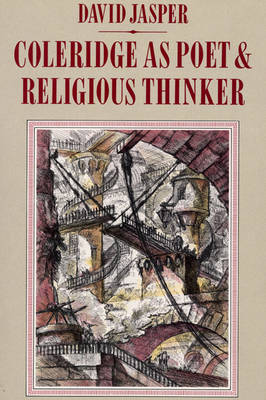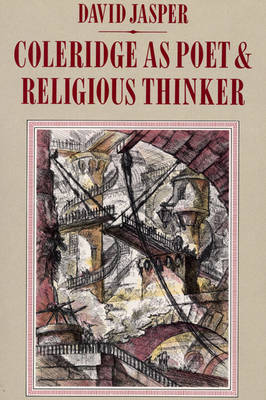
- Retrait gratuit dans votre magasin Club
- 7.000.000 titres dans notre catalogue
- Payer en toute sécurité
- Toujours un magasin près de chez vous
- Retrait gratuit dans votre magasin Club
- 7.000.0000 titres dans notre catalogue
- Payer en toute sécurité
- Toujours un magasin près de chez vous
Description
In the nineteenth century there was a definite divide between those who read Coleridge as a religious thinker and those who read him as a poet. Even now, readers and critics find it hard not to consider one aspect of his work to the exclusion of the other. Here David Jasper considers Coleridge as a poet, literary critic, theologian and philosopher, seeing him as occupying a representative place in European and English Romantic thought on poetry, religion and the role of the artist. His earliest writings are closely linked to his mature religious and critical thought, and his greatest poems, 'Kubla Khan', 'The Rime of the Ancient Mariner' and the 'Dejection' Ode, are a necessary prelude to the prose writings of the middle period of Coleridge's life. Self-reflection upon the processes of creating poetry and art, particularly in the Biographia Literaria, is an important development in Coleridge's sense of the relation of the finite to the infinite through the inspiration of the poet. Attention to the nature of inspiration, imagination and irony in creative writing leads directly to his later discussions of man's need of a divine redeemer and the nature of divine revelation. In the later poetry, attention is given to the theme of self-reflection in which spiritual growth is part and parcel of poetic development, each balancing the other. The final part of the book considers Coleridge's later prose, linking his reflections upon poetry with an epistemology, which he learnt principally from Kant and Fichtee in a discussion of revelation and radical evil. In conclusion, Coleridge's religious position is summed up through the late, and still unpublished notebooks, and the fragmentary remains of the long-projected Opus Maximum. The last chapter links Coleridge with a more recent debate on the nature of inspiration, poetic and divine, which arises out of Austin Farrer's Bampton Lectures The Glass of Vision.
Spécifications
Parties prenantes
- Auteur(s) :
- Editeur:
Contenu
- Nombre de pages :
- 208
- Langue:
- Anglais
- Collection :
- Tome:
- n° 15
Caractéristiques
- EAN:
- 9780915138708
- Date de parution :
- 01-08-04
- Format:
- Livre broché
- Format numérique:
- Trade paperback (VS)
- Dimensions :
- 149 mm x 224 mm
- Poids :
- 430 g

Les avis
Nous publions uniquement les avis qui respectent les conditions requises. Consultez nos conditions pour les avis.






